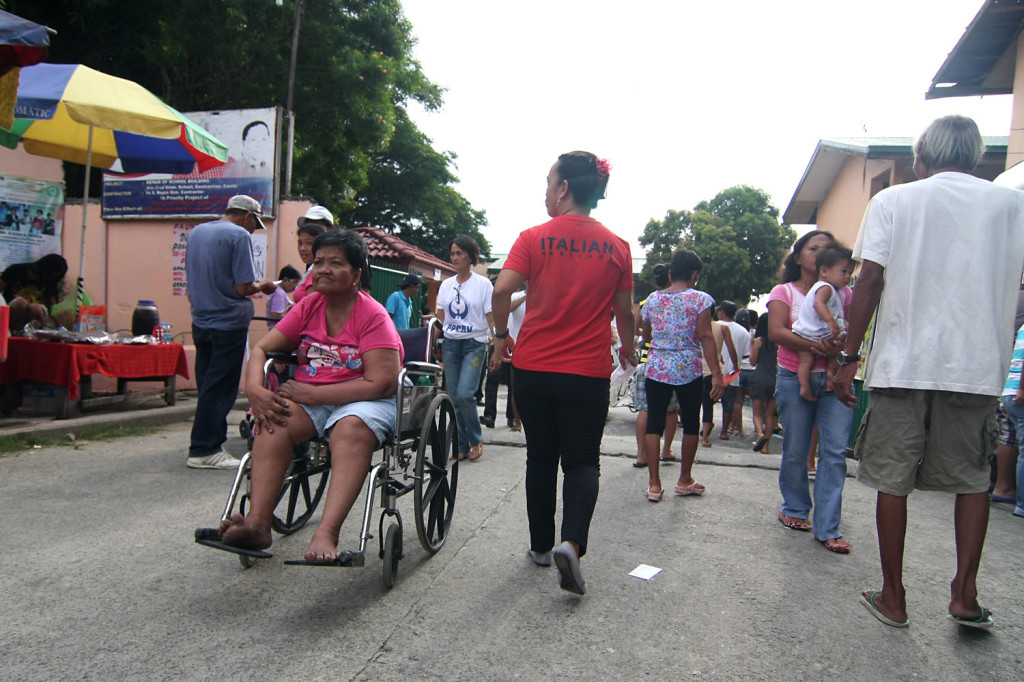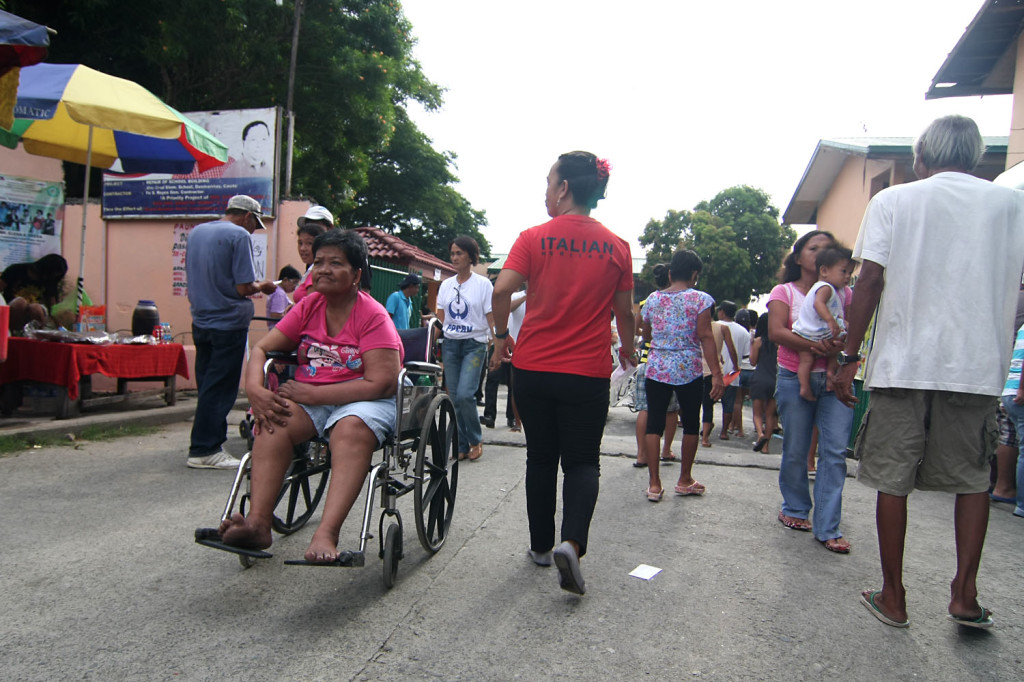
By JONATHAN DE SANTOS
DASMARIÑAS CITY, Cavite—Josephine Bae carefully shaded the ovals on the ballot as her mother looked on. When she was done, she eagerly showed her handiwork to the “visitor” at the precinct.
It was 22-year-old Bae’s first time to vote on Monday. But unlike other voters, Bae, who has Down Syndrome, was at a special polling center that had been set aside for voters with disabilities like her.
Bae’s precinct at the Salawag Elementary School in this city was one of only two in the country the Commission on Elections had designated as accessible polling places—or APPs—for persons with disabilities, the first ever in the Philippines’ 118-year electoral history. The other APP was at the Sta. Cruz Elementary School in Area E also in this city.
Creation of the APPs with special Boards of Election Inspectors was the product of Comelec Resolution 9640. Issued last year, it was designed to encourage the 362,113 registered voters with physical, hearing, speech, visual and other impairments to exercise their right of suffrage by requiring all polling precincts with such voters to be located on the ground floor of the voting center, among other things.
(Republic Act 10366, which was signed in February and authorizes the poll body to designate APPs exclusively for disabilities and senior citizens, will take effect only in July.)
But the Comelec resolution wasn’t implemented in full on Monday, to the dismay of PWDs and those advocating for their participation in this year’s elections.
Comelec assigned only two voting centers here with the biggest number of registered PWD voters as APPs—the two here— and 15 others where sign language interpreters would be deployed.
Even with the move, the two APPs and a number of the 15 voting centers like the Juan Sumulong Elementary School in Pasay City had no sign language interpreters.
